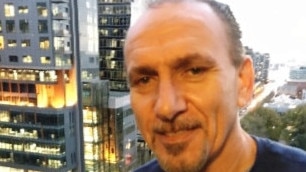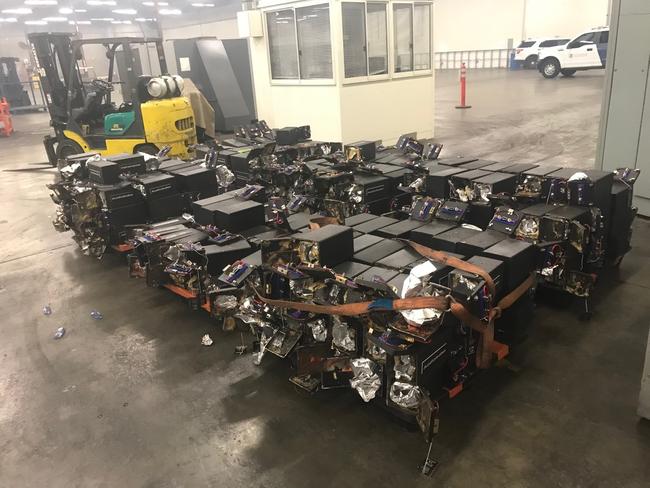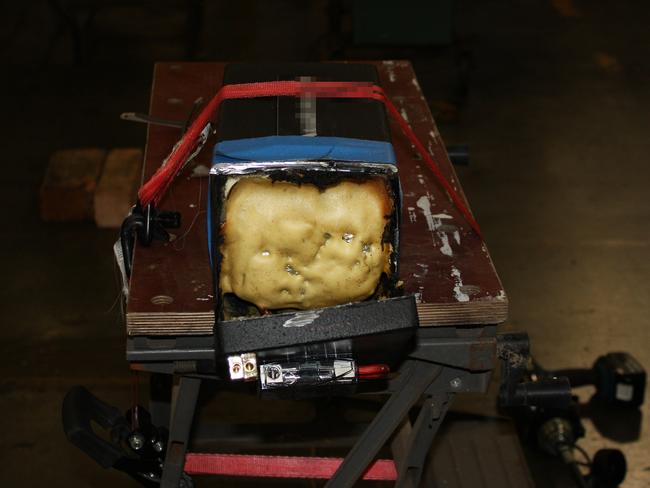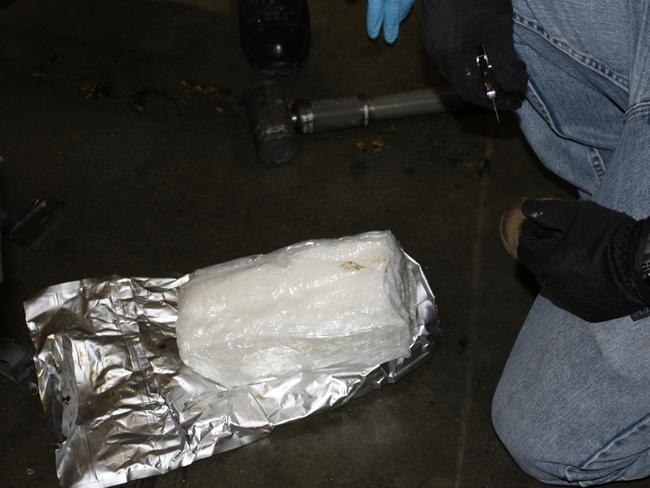Modern-day Bonnie and Clyde jailed over $800m drug bust
An American couple have been jailed over a mammoth $800m ice and cocaine bust, described by a judge as among the most serious attempted importations in Australian history.

Police & Courts
Don't miss out on the headlines from Police & Courts. Followed categories will be added to My News.
A modern-day Bonnie and Clyde have been jailed over a mammoth $800m drug bust, described by a judge as among the most serious attempted importations in Australian history.
American couple Nasser Abo Abdo, 57, and Leonor Fajardo, 52, were on Friday jailed for 21 and 14 years respectively after they attempted to import 1.29 tonnes of methamphetamine and 15.8kg of cocaine from California to Melbourne hidden in a consignment of car audio parts.
In his sentencing remarks, County Court Judge Michael O’Connell said it was difficult to overstate the seriousness of the attempted importation which had an estimated street value of up to $828m.
“The value of the drugs is difficult to comprehend. It runs into hundreds of millions of dollars, potential profits for those involved in the enterprise was staggering,” he said.
“The scale of the social damage such a quantity of drugs would cause is immense.
“It is possible to point to some cases which are more serious than this case, but not many. The fact is, this offending sits comfortably amongst the most serious drug offending to be prosecuted in this country.”

The court heard Abdo acted as a “conduit” between criminal organisations in North America and Australia by using his legitimate electronic goods business as cover for drug shipments.
He was responsible for storing and unpacking the drugs pending sale in Australia and would keep some of the importation as payment, while Fajardo helped with the business and administrative aspects of the trade.
They were helped by a representative for a Sydney-based drug syndicate and criminal contacts in the US and Canada.
In January 2019, three shipping containers were scheduled to be shipped from California to a factory in Campbellfield in Melbourne’s northern suburbs which was leased by Abdo.
Homeland Security in the US, working closely with the Victorian Joint Organised Crime Force, intercepted the consignment, uncovering 1.29 tonnes of pure methamphetamine and 15.8kg of pure cocaine in two of the containers.

Police seized the drugs before reloading the containers onto the ship with a plan to track the consignment after it arrived in Melbourne in February 2019.
But police learnt Abdo and Fajardo, who were living in a rental in Woodstock on Melbourne’s outer fringe, planned to travel to the Middle East and China prior to its arrival so they swooped in and arrested the couple two days before their planned departure.
Phone taps and covert listening devices installed at their property captured Abdo planning the importation in the months leading up to his arrest.
An undercover law enforcement agent in the US was also involved in the sting.
The court heard Abdo was raised in Southern California and ran a successful electronics business selling car and home audio equipment in Santa Ana.
He began importing electronic goods from manufacturers in Taiwan, and bought another business which he built into an enterprise with a turnover of $80m.

At one point, Abdo’s net worth was $40m but his companies went bust during the Global Financial Crisis and he filed for personal bankruptcy.
The court heard he met Fajardo while she worked for him.
Judge O’Connell said the pair were “model prisoners”, noting Abdo had taken on a leadership role for Islamic prisoners, leading twice daily prayers, while Fajardo had completed university subjects related to criminology.
“You are to be given credit for the work you appear to have done in prison, which suggests you have very good prospects of rehabilitation,” he said.
He also noted the extensive delays to their case meant they had spent more than five years on remand.
The pair pleaded guilty to one count of conspiracy to import commercial quantity of a border controlled drug.
Abdo must serve 14 years of his sentence before he is eligible for parole, while Fajardo must complete at least 8.5 years.



